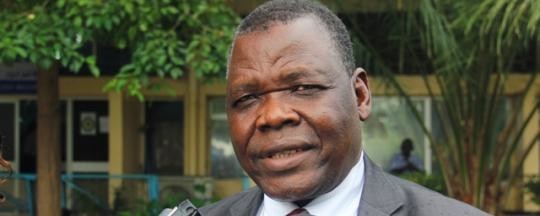A senior official visiting Juba from the Netherlands has urged South Sudan’s government to implement the peace agreement signed last August including by starting the process for transitional justice.
South Sudan’s President Salva Kiir last week announced his opposition to establishment of a hybrid court to try war crimes, though the court is mandated by the peace deal. Kiir said that “disciplinary justice… would destabilize efforts to unite our nation.”
Christiaan Rebergen, the Netherlands Vice-Minister for International Cooperation, is urging the new unity government to implement “all elements” of the peace agreement signed last year.
In a press release, the Embassy of the Netherlands in Juba said that Rebergen visited South Sudan from Monday to Wednesdy where he met with Foreign Minister Deng Alor and Justice Minister Paulino Wanawilla, among other officials.
“I acknowledge the important step taken by establishing the Transitional Government of National Unity,” said the Netherlands official. “I urge the TGoNU to speed up implementation of all elements of the peace agreement.”
“This includes carrying through political and economic reforms, and start a process of transitional justice and accountability,” added Rebergen.
According to the press release, Rebergen also visited the UN protection site in Juba and received a briefing from the International Organisation for Migration about a drainage project funded by the Dutch government in the Bentiu protection site.
Rebergen “was deeply moved by the difficult conditions the [displaced people] throughout the country have to cope with,” the embassy stated.
The statement also says that the Kingdom of the Netherlands has pledged 17 million Euros for humanitarian aid for 2016 and will continue to support programs for peacebuilding, civil society and access to justice, as well as food security.
The Netherlands announced in September 2014 that it cut direct aid to the South Sudanese government, citing frustrations with continuing violence in spite of a cessation of hostilities agreement and “apparent impunity.”
File photo: Justice Minister Paulino Wanawilla Unago, who met with the visiting Netherlands official
Related:
Explaining South Sudan’s peace deal: Transitional justice mechanisms




